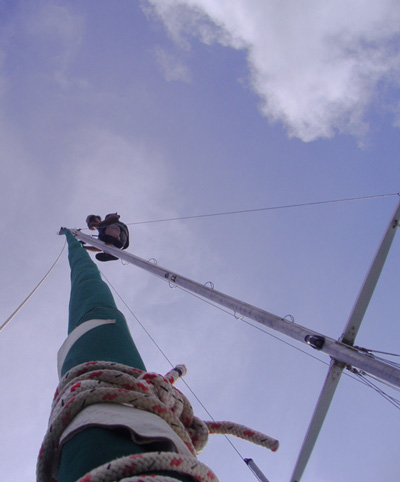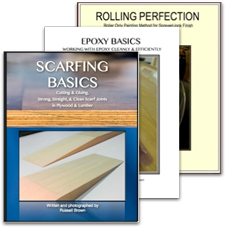In the j’accuse department, some legal wrangling of the maritime/not maritime sort, and, nope, 2012 is not what I imagined it would be back in the early 70's...
I've got a variety of rigging jobs coming up in the not too instant future and, as it happens, someone recently wrote asking what a good basic rigging kit should contain, so it seems a reasonable time to talk about what's in the bag...
Cutting implements... Of course, I have my day-to-day boat knife but I keep my ceramic knife in the rigging kit along with a couple of razor knives, a pair of shears and surgical scissors.
Fids... I have a bunch, partly because some fids work better in some situations/materials than others and partly (I believe) fids are a lot like rabbits which, if left alone for any length of time, you'll find that your rigging bag is full of a lot of fids that seemed to get there all by themselves. That said, my most used fid-like objects are actually forceps if that is of any interest.
A bag full of light stuff for whipping and seizing, some heavy waxed thread and some sail needles plus a hunk of beeswax seem to complete the marlin spike side of things.
For the standing rig work, it's pretty simple... a pair of 10-inch adjustable wrenches (otherwise known as Crescent or Moy), a hack saw, a block of wood with wire-sized holes and a saw kerf to use as a jig to saw wire in a non-problematic manner, a 100-foot measuring tape, and a selection of Loos tension gauges.
The only other bit worth mentioning that does not fit in the rigging bag is a proper bench vise on a board because life is just too short to mess around without one.
Of course, I should add that Brion Toss's book "The Complete Riggers Apprentice" pretty much answers any needful questions that are likely to come up whether it be tools, a particular splice, and anything else dealing with rope or wire.
Listening to The Civil Wars
So it goes...

In Search of a Sewist
1 week ago








